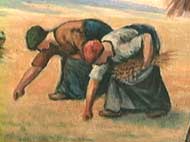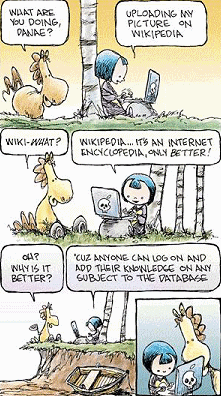A copy from the website
World Wide Words. This term is used often and misspelled enough so that the correct spelling is threatened.
The correct spelling is actually bated breath but it’s so common these days to see it written as baited breath that there’s every chance that it will soon become the usual form, to the disgust of conservative speakers and the confusion of dictionary writers. Examples in newspapers and magazines are legion; this one appeared in the Daily Mirror on 12 April 2003: “She hasn’t responded yet but Michael is waiting with baited breath”.
It’s easy to mock, but there’s a real problem here.
Bated and baited sound the same and we no longer use
bated (let alone the verb to
bate), outside this one set phrase, which has become an idiom. Confusion is almost inevitable.
Bated here is a contraction of
abated through loss of the unstressed first vowel (a process called
aphesis); it means “reduced, lessened, lowered in force”. So
bated breath refers to a state in which you almost stop breathing as a result of some strong emotion, such as terror or awe.
Shakespeare is the first writer known to use it, in The Merchant of Venice, in which Shylock says to Antonio: “Shall I bend low and, in a bondman’s key, / With
bated breath and whisp’ring humbleness, / Say this ...”. Nearly three centuries later, Mark Twain employed it in Tom Sawyer: “Every eye fixed itself upon him; with parted lips and
bated breath the audience hung upon his words, taking no note of time, rapt in the ghastly fascinations of the tale”.
I found this hilarious explanation, too, complete with illustration:
Baited – lured to a trap with the promise of a reward, or the act of having placed that reward in the trap.
Bated – diminished, reduced, basically the same thing as “abated.”
So if we baited the trap with cheese, then everything about the rat is bated – its life is bated, our rat problem is bated, and its breath is definitely bated. Yes, folks, it’s “waiting with bated breath” not baited. (And not “weighting,” for that matter.) It means to hold your breath in excited anticipation, it doesn’t mean your breath smells like cheese. Though you still might consider a mint now and then, for reals.


















